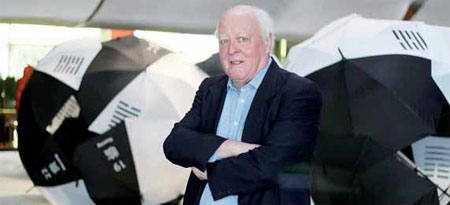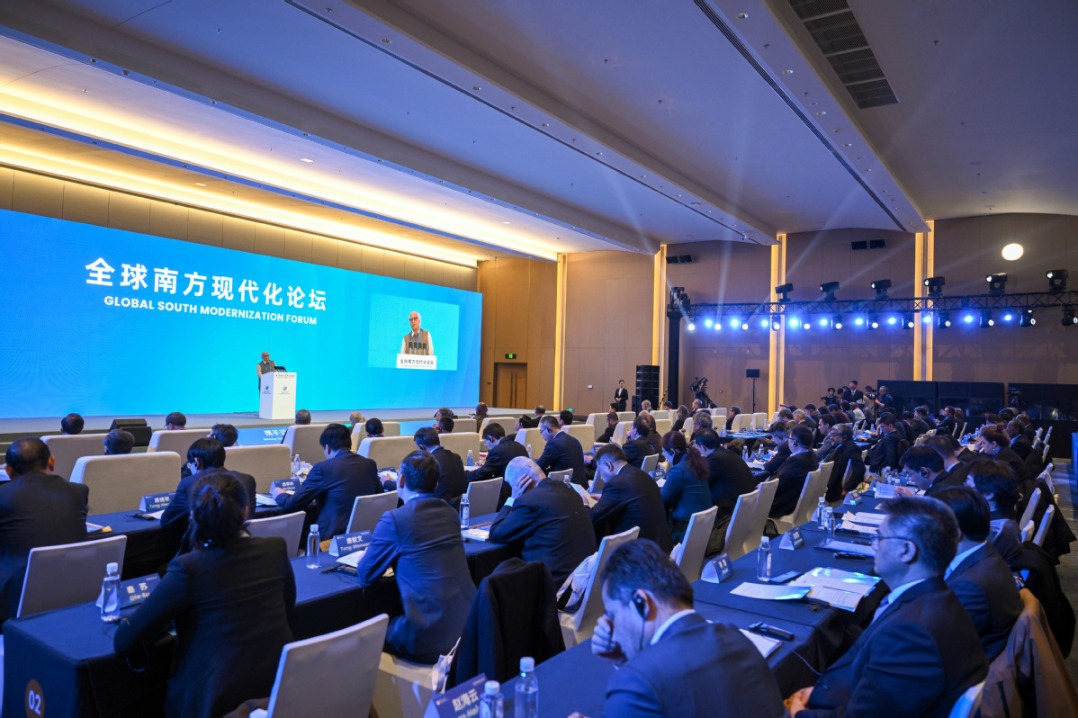Subject of interest

| Jonathan Fenby, author of many books on China including the latest one Tiger Head, Snake Tails. Wang Jing / China Daily |
New chapters
China's emergence as a darling of the publishing industry was confirmed when it was invited to be present as the "Market Focus" at the London Book Fair last month.
As publishers were busy discussing ways to forge Anglo-Chinese publishing partnerships and extend operations into new markets, many delegates preferred to browse the remarkable range of China-related titles on offer, attending book readings and panels hosted by a series of high-profile writers.
In many respects events such as these are evidence of the breadth of opportunity publishers are now presented with when it comes to China titles. If When China Rules the World proved the zenith of popular economic and geopolitical writing on the country, last year's parenting guide Battle Hymn of the Tiger Mother by Amy Chua showed that there is a market for broader cultural titles related to China.
The book caused mild media frenzy upon release for Chua's controversial approach to parenting, and has reportedly sold over a million copies worldwide. It was also indicative of this wider range of China-related titles enjoying mainstream success.
One such title is Julia Lovell's The Opium War, a work of history that reappraises the impact of the opium wars on attitudes in China today. It is the sort of the book
that even 10 years ago might have struggled to achieve a popular readership, but today enjoys a wide circulation.
Lovell presented a panel at the London Book Fair in her role as a champion of Chinese literature. She has translated a series of works, including Lu Xun's short stories, and is finding that interest in Chinese literature is catching up with the longer-standing interest in China's economic rise.
"In the UK now we have quite a lot of access to economic and political stories about China, and they generally focus on the big headlines and the big trends in the country," Lovell says.
"I think that reading literature is a very useful companion source on China. These big stories we hear about tend to not be about individuals. They tend to be about the country as a whole.
"Literature by its very essence is a human, individual endeavor. It is one person's individual response to their set of circumstances. So by reading literature you are by definition grounding yourself in very individual stories."
It is the job of Marysia Juszczakiewicz, founder of the Hong Kong-based Peony Literary Agency, to seek out the stories from China that might appeal to a Western market.
"The main focus of what I do is try to find a diversity of voices from China in stories," says Juszczakiewicz. "I am looking for good stories that can cross cultural boundaries. Something that is universal in its emotional appeal and in the way the characters are formulated."
Chinese novelists are enjoying a wider audience than ever before. Jiang Rong's Wolf Totem, perhaps the most famous, enjoyed popular success globally. Penguin Books paid $100,000 for the worldwide English-language rights, a record at the time for a Chinese novel.
Juszczakiewicz, however, wants to move away from the grand historical narratives that have tended to define Chinese novels that have won an overseas following. Wolf Totem, like many, is set during the "cultural revolution" (1966-76), but Juszczakiewicz argues that it is important to show the world more of modern China through literature.
"There have been a lot of stories about these big historical sagas centered on the 'cultural revolution'. I don't think people realize quite how diverse the voices are. Of course not everything can be translated, but I try to translate as much as I can.
"For example my next author who is coming through is Han Han, who has a tremendous amount of publicity in China. It will be interesting to see how he's received in the English language. I think he will do very well and it will be really interesting for the West to read about how someone in the late 20s perceives modern China."
Juszczakiewicz's efforts in promoting Chinese literature abroad have not gone unnoticed. One of her writers, Su Tong, won the Man Asian Literary Prize in 2009 for his avant garde novel, The Boat to Redemption.
David Parker, chair director of the Man Asian Literary Prize, says: "As Asia - and China, especially - have become the world's primary engine of economic growth, the West has become naturally fascinated by the region and feels a need to understand it better.
"Part of the fascination is sheer curiosity and I think fascination with the country often leads to fascination with the writing. People in the West can often have superficial media-created images of China and Asia that often just recycle stereotypes. Nothing undermines these stereotypes more effectively than the best novels when they promote real understanding."
Big business
Another type of China book that has proliferated in recent years promotes a different type of understanding: business. Books promising access to untold fortunes in Chinese markets have been commonplace on bookshelves for the past decade, and there is no sign of a slowdown.
"Before I began to write The China Executive in 1999, there had been no books published on the topic of 'China business' as such," says author Wei Wang. "But by the time my book was published in 2006, a large number of books on China business began to appear on the market."
Many of these titles performed well. Books such as Tim Clissold's Mr. China and James McGregor's One Billion Customers sold particularly well and garnered much mainstream attention. But Wei Wang suggests caution when approaching books that promise easy solutions to the challenges of doing business in China.
"While these titles as a whole represent a development in the field of China business thinking, there has sometimes been too much of a disconnect between what people read about China and what they find when they arrive because of the authors' backgrounds".
Edward Tse, author of The China Strategy, reiterates the point, and argues that it can often be counter-productive to take advice from people who may not have first-hand experience of doing business on the ground in China.
"Often authors don't live and work in China and visit only occasionally. They write about China from long distances and some rely mostly on third-hand sources of information. China changes so fast and is such a large and complex country, it is rather hard for authors to fully capture China. By the time a book comes out, some of its contents may be somewhat outdated already."
The issue of timing is important, according to Wei Wang. While China is moving so far and publishers are putting pressure on authors to produce work quickly, he argues that the best books are often the result of a little more contemplation.
"An important ingredient is time, sufficient time to reflect on one's experience, to digest others' ideas, and to develop a meaningful structure. Yet, when one writes under the pressure of the deadline set by a publisher, it is difficult to do these things properly."
Whether his advice is heard among the clamor to produce more and more titles on China is another issue. Either way, there can be no denying that readers have unprecedented access to books on the country.
"The more books there are about China, whether that's literature or secondary responses to China by Anglophone speakers, the better," says Lovell. "Certainly over the time I've been working on China I've seen the number of books available multiply quite dramatically.
"I'm sure that the trend will continue. I think the story of the rise of China is one of the most interesting and complex stories in the world today, and the more sources and responses we have on it the better our understanding will be."
Li Aoxue contributed to this story.
Today's Top News
- Lawmakers' thousands of proposals receive responses
- China warns Japan against interference
- Nation's euro bond sale shows investors' confidence
- No soft landing for Tokyo's hard line
- Commerce minister urges US to increase areas of cooperation
- Strong demand for China's sovereign bonds signals global confidence































